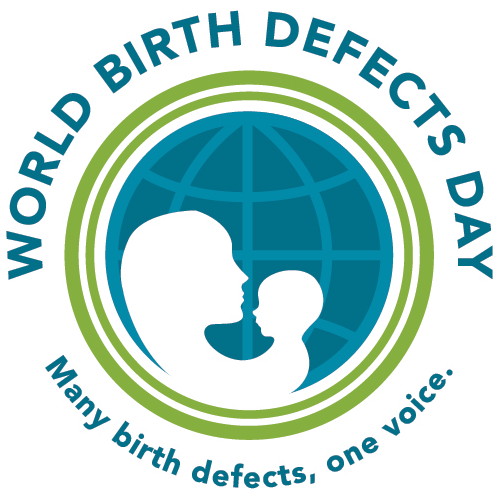Birth defects are usually perceived as spiritual issues in Africa.
Most people believe a spirit or demon may have attacked the baby while it was in the womb.
Such beliefs make it difficult for families to seek professional medical help. Instead, they run to traditional healers and other alternative spiritual helpers for solutions. And this is part of the broad mission of campaigns like “World Birth Defect Day” to help sensitize communities about the importance of seeking professional medical help at the right time.
“An estimated 240 000 newborns die worldwide within 28 days of birth every year due to congenital disorders. Congenital disorders cause a further 170 000 deaths of children between the ages of 1 month and 5 years.”
World Health Organization
Most birth defects can be prevented [like the ones caused by folic acid deficiency–neural tube defects], and many can be managed effectively.
We have brought together resources that will help inform parents and healthcare professionals about birth defects [congenital abnormalities].
If you know anyone who will benefit from this information, kindly share it with them. You never can tell whose life you will be saving.
“Every year, about 3-6% of infants worldwide are born with a serious birth defect. This means that life-altering conditions such as spina bifida and congenital heart defects affect millions of babies and families.”
Centre For Disease Control.
What Are Birth Defects?
How can you identify birth defects? This resource from the CDC explains how parents can identify birth defects and quickly seek help.
Preventing Birth Defects
Some birth defects can be prevented [not all of them]. If women are exposed to correct information on how to take care of themselves and their unborn babies, we will have fewer cases of preventable congenital abnormalities.
- Be sure to see your healthcare provider regularly and start prenatal care as soon as you think you might be pregnant.
- Get 400 micrograms (mcg) of folic acid every day, starting at least one month before getting pregnant.
- Don’t drink alcohol or smoke.
- Talk to a healthcare provider about any medications you are taking or thinking about taking. This includes prescription and over-the-counter medications and dietary or herbal supplements. Don’t stop or start taking any type of medication without first talking with a doctor.
- Know how to prevent infections during pregnancy.
- Be proactive in identifying and treating fever when ill or after getting a vaccine. Treat fevers higher than 101oF with Tylenol® (or store brand acetaminophen), and avoid hot tubs, saunas, or other environments that might cause overheating.
- If possible, be sure any medical conditions are under control before becoming pregnant. Some conditions, such as diabetes, can increase the risk of birth defects.
CDC’s research on causes and risk factors of birth defects
Specific Birth Defects
Know some of the common birth defects.
Data and Statistics
Get informed by accurate data about birth defects.
Information on Birth Defects for Healthcare Providers
Rich and up-to-date information about birth defects for healthcare professionals.
Links to Other Resources on Birth Defects
“Consanguinity (when parents are related by blood) also increases the prevalence of rare genetic congenital disorders and nearly doubles the risk for neonatal and childhood death, intellectual disability and other anomalies.”
World Health Organization
More Resources
World Health Organization | Congenital Disorders
“Congenital disorders are also known as congenital abnormalities, congenital malformations or birth defects. They can be defined as structural or functional anomalies (for example, metabolic disorders) that occur during intrauterine life and can be identified prenatally, at birth, or sometimes may only be detected later in infancy, such as hearing defects. Broadly, congenital refers to the existence at or before birth.”
Birth Defects Research For Children | List of Common Birth Defects
This resource brings together a detailed list of some common birth defects.
Eunice Kennedy Shriver National Institute of Child Health and Human Development | Birth Defects Resources
This resource contains links to websites of groups that study or provide information about birth defects.





